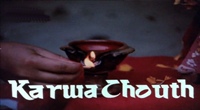
A corporation is a company or group of people or an organisation authorized to act as a single entity (legally a person) and recognized as such in law. Early incorporated entities were established by charter (i.e. by an ad hoc act granted by a monarch or passed by a parliament or legislature). Most jurisdictions now allow the creation of new corporations through registration. Corporations enjoy limited liability for their investors, which can lead to losses being externalized from investors to the government or general public. Corporations are usually the most profitable and powerful business entities, such as their public control, influence over government (including political candidates that support them), and ability to protect its interests and make huge profits.
Corporations come in many different types but are usually divided by the law of the jurisdiction where they are chartered into two kinds: by whether they can issue stock or not, or by whether they are formed to make a profit or not.
Where local law distinguishes corporations by the ability to issue stock, corporations allowed to do so are referred to as "stock corporations", ownership of the corporation is through stock, and owners of stock are referred to as "stockholders" or "shareholders". Corporations not allowed to issue stock are referred to as "non-stock" corporations; those who are considered the owners of a non-stock corporation are persons (or other entities) who have obtained membership in the corporation and are referred to as a "member" of the corporation.
Corporations chartered in regions where they are distinguished by whether they are allowed to be for profit or not are referred to as "for profit" and "not-for-profit" corporations, respectively.
There is some overlap between stock/non-stock and for-profit/not-for-profit in that not-for-profit corporations are always non-stock as well. A for-profit corporation is almost always a stock corporation, but some for-profit corporations may choose to be non-stock. To simplify the explanation, whenever "Stockholder" or "shareholder" is used in the rest of this article to refer to a stock corporation, it is presumed to mean the same as "member" for a non-profit corporation or for a profit, non-stock corporation.
Registered corporations have legal personality and their shares are owned by shareholders whose liability is generally limited to their investment. Shareholders do not typically actively manage a corporation; shareholders instead elect or appoint a board of directors to control the corporation in a fiduciary capacity. In most circumstances, a shareholder may also serve as a director or officer of a corporation.
In American English, the word corporation is most often used to describe large business corporations. In British English and in the Commonwealth countries, the term company is more widely used to describe the same sort of entity while the word corporation encompasses all incorporated entities. In American English, the word company can include entities such as partnerships that would not be referred to as companies in British English as they are not a separate legal entity.
Late in the 19th century, a new form of company having the limited liability protections of a corporation, and the more favorable tax treatment of either a sole proprietorship or partnership was developed. While not a corporation, this new type of entity became very attractive as an alternative for corporations not needing to issue stock. In Germany, the organization was referred to as Gesellschaft mit beschränkter Haftung or GmbH. In the last quarter of the 20th Century this new form of non-corporate organization became available in the United States and other countries, and was known as the limited liability company or LLC. Since the GmbH and LLC forms of organization are technically not corporations (even though they have many of the same features), they will not be discussed in this article.
Contents
History
The word "corporation" derives from corpus, the Latin word for body, or a "body of people". By the time of Justinian (reigned 527–565), Roman law recognized a range of corporate entities under the names universitas, corpus or collegium. These included the state itself (the Populus Romanus), municipalities, and such private associations as sponsors of a religious cult, burial clubs, political groups, and guilds of craftsmen or traders. Such bodies commonly had the right to own property and make contracts, to receive gifts and legacies, to sue and be sued, and, in general, to perform legal acts through representatives. Private associations were granted designated privileges and liberties by the emperor.
Entities which carried on business and were the subjects of legal rights were found in ancient Rome, and the Maurya Empire in ancient India. In medieval Europe, churches became incorporated, as did local governments, such as the Pope and the City of London Corporation. The point was that the incorporation would survive longer than the lives of any particular member, existing in perpetuity. The alleged oldest commercial corporation in the world, the Stora Kopparberg mining community in Falun, Sweden, obtained a charter from King Magnus Eriksson in 1347.
In medieval times, traders would do business through common law constructs, such as partnerships. Whenever people acted together with a view to profit, the law deemed that a partnership arose. Early guilds and livery companies were also often involved in the regulation of competition between traders.
Mercantilism
The progenitors of the modern corporation were the chartered companies, such as the Dutch East India Company (VOC) and the Hudson's Bay Company, which were created to lead the colonial ventures of European nations in the 17th century. Acting under a charter sanctioned by the Dutch government, the Dutch East India Company defeated Portuguese forces and established itself in the Moluccan Islands in order to profit from the European demand for spices. Investors in the VOC had issued paper certificates as proof of share ownership, and were able to trade their shares on the original Amsterdam Stock Exchange. Shareholders were also explicitly granted limited liability in the company's royal charter.
In England, the government created corporations under a royal charter or an Act of Parliament with the grant of a monopoly over a specified territory. The best-known example, established in 1600, was the East India Company of London. Queen Elizabeth I granted it the exclusive right to trade with all countries to the east of the Cape of Good Hope. Some corporations at this time would act on the government's behalf, bringing in revenue from its exploits abroad. Subsequently, the Company became increasingly integrated with English and later British military and colonial policy, just as most corporations were essentially dependent on the Royal Navy's ability to control trade routes.
Labeled by both contemporaries and historians as "the grandest society of merchants in the universe", the English East India Company would come to symbolize the dazzlingly rich potential of the corporation, as well as new methods of business that could be both brutal and exploitative. On 31 December 1600, Queen Elizabeth I granted the company a 15-year monopoly on trade to and from the East Indies and Africa. By 1711, shareholders in the East India Company were earning a return on their investment of almost 150 per cent. Subsequent stock offerings demonstrated just how lucrative the Company had become. Its first stock offering in 1713–1716 raised £418,000, its second in 1717–1722 raised £1.6 million.
A similar chartered company, the South Sea Company, was established in 1711 to trade in the Spanish South American colonies, but met with less success. The South Sea Company's monopoly rights were supposedly backed by the Treaty of Utrecht, signed in 1713 as a settlement following the War of the Spanish Succession, which gave Great Britain an asiento to trade in the region for thirty years. In fact the Spanish remained hostile and let only one ship a year enter. Unaware of the problems, investors in Britain, enticed by extravagant promises of profit from company promoters bought thousands of shares. By 1717, the South Sea Company was so wealthy (still having done no real business) that it assumed the public debt of the British government. This accelerated the inflation of the share price further, as did the Bubble Act 1720, which (possibly with the motive of protecting the South Sea Company from competition) prohibited the establishment of any companies without a Royal Charter. The share price rose so rapidly that people began buying shares merely in order to sell them at a higher price, which in turn led to higher share prices. This was the first speculative bubble the country had seen, but by the end of 1720, the bubble had "burst", and the share price sank from £1000 to under £100. As bankruptcies and recriminations ricocheted through government and high society, the mood against corporations, and errant directors was bitter.
In the late 18th century, Stewart Kyd, the author of the first treatise on corporate law in English, defined a corporation as:
a collection of many individuals united into one body, under a special denomination, having perpetual succession under an artificial form, and vested, by policy of the law, with the capacity of acting, in several respects, as an individual, particularly of taking and granting property, of contracting obligations, and of suing and being sued, of enjoying privileges and immunities in common, and of exercising a variety of political rights, more or less extensive, according to the design of its institution, or the powers conferred upon it, either at the time of its creation, or at any subsequent period of its existence.
—?A Treatise on the Law of Corporations, Stewart Kyd (1793–1794)
Modern company law
Due to the late 18th century abandonment of mercantilist economic theory and the rise of classical liberalism and laissez-faire economic theory due to a revolution in economics led by Adam Smith and other economists, corporations transitioned from being government or guild affiliated entities to being public and private economic entities free of governmental directions.
Adam Smith wrote in his 1776 work The Wealth of Nations that mass corporate activity could not match private entrepreneurship, because people in charge of others' money would not exercise as much care as they would with their own.
Deregulation
The British Bubble Act 1720's prohibition on establishing companies remained in force until its repeal in 1825. By this point, the Industrial Revolution had gathered pace, pressing for legal change to facilitate business activity.[29] The repeal was the beginning of a gradual lifting on restrictions, though business ventures (such as those chronicled by Charles Dickens in Martin Chuzzlewit) under primitive companies legislation were often scams. Without cohesive regulation, proverbial operations like the "Anglo-Bengalee Disinterested Loan and Life Assurance Company" were undercapitalised ventures promising no hope of success except for richly paid promoters.[30]
The process of incorporation was possi
Watch movie Corporate online on Amazon
Watch movie Corporate online
Watch The Movie On PrimeMasti Full HD Movie Download

Durga Pooja Full HD Movie Download

Bahu Begum Full HD Movie Download

Banjaran Full HD Movie Download

Patita (1953) Full HD Movie Download
.jpg)
Karwa Chouth Full HD Movie Download

Zindagani Full HD Movie Download

Aankhen (1993) Full HD Movie Download
.jpg)
Lakhon Mein Ek (1971) Full HD Movie Download
.jpg)
Daku Veera Full HD Movie Download

Kaminey Full HD Movie Download

Pasivadi Pranam Full HD Movie Download

Nyayam Meere Cheppali Full HD Movie Download

Pelli Pusthakam Full HD Movie Download

Aaryan Full HD Movie Download

Padavi Pramanam Full HD Movie Download

Lakshadhikari Full HD Movie Download

Prema Gola Full HD Movie Download

Surya Chandra Full HD Movie Download

Indru Poi Naalai Vaa Full HD Movie Download

Kati Patang Full HD Movie Download

Download latest Movie from bollywood
- 1> baaghi 3
- 2> THE SKY IS PINK MOVIE FULL STORY AND REVIEW
- 3> Luka Chuppi
- 4> TO ALL THE BOYS I’VE LOVED BEFORE
- 5> Kabir Singh
- 6> Street Dancer 3D
- 7> Simmba
- 8> Gone Girl
- 9> The Girl Who Lived
- 10> Ludo
- 11> DILWALE DULHANIA LE JAYENGE
- 12> GUILTY
- 13> The Godfather
- 14> Adventures of Rusty
- 15> Sooryavanshi
- 16> Satyameva Jayate 2
- 17> Thappad
- 18> Bhool Bhulaiyaa 2
- 19> KGFChapter 2
- 20> Mardaani 2
- 21> Pinjar
- 22> Shivaji maharaj
- 23> Ek Villian 2
- 24> Hungama 2
- 25> Divergent
- 26> Mumbai Saga
- 27> The Internship
- 28> HIT (telugu)
- 29> Panga
- 30> The perfect date
- 31> 16 December
- 32> Gopala Gopala (Telugu)
- 33> Brahmastra
- 34> Gangubai Kathiawadi
- 35> Manmadhudu
- 36> Nenu local
- 37> Mahanati
- 38> Shatamanam bavathi
- 39> Lagaan
- 40> After
- 41> MOM
- 42> Shamshera
- 43> Raguvaran BTech
- 44> Khakee
- 45> The villain
- 46> OM
- 47> Mr. perfect
- 48> Bueatifull mind
- 49> Hichki
- 50> Gabbar Singh
- 51> Jogi
- 52> Before Sunrise
- 53> Before Sunset
- 54> Before Midnight
- 55> The Big Bull
- 56> Top Gun: Maverick
- 57> The Purge
- 58> The Sky is Pink
- 59> Laxmmi Bomb
- 60> Sadak 2
- 61> Sufna
- 62> Prithviraj
- 63> PK
- 64> Coolie No 1(2020)
- 65> Black Widow
- 66> Dear Zindagi
- 67> Dil Bechara
- 68> PHIR HERA PHERI
- 69> WAR
- 70> Dostana
- 71> RRR: Roudram Ranam Rudhiram
- 72> Maidan
- 73> Dabbang 3
- 74> Chhalaang
- 75> life as we know it
- 76> SherShaah
- 77> Sandeep Aur Pinky Faraar
- 78> Event Horizon
- 79> 83
- 80> Radhe: Your Most Wanted Bhai
- 81> Gunjan Saxena: The Kargil Girl
- 82> Mr India
- 83> Vivah
- 84> Anokha Bandhan
- 85> Ghost
- 86> Bhoot: Part One - The Haunted Ship
- 87> Haseen Dilruba
- 88> Laal Singh Chaddha
- 89> Qismat
- 90> Rajput
- 91> Drive
- 92> Dil Chahta Hai
- 93> Dil Ki Baazi
- 94> Dil Ka Rishta
- 95> Teesri Manzil
- 96> Dil
- 97> Love Aaj Kal
- 98> Khaali Peeli
- 99> Bunty Aur Babli 2
- 100> Atrangi Re
- 101> Gulabo Sitabo
- 102> Jodi
- 103> Suraj Pe Mangal Bhari
- 104> Deewana
- 105> Attack
- 106> Sardar Udham Singh
- 107> Toofan
- 108> THE LOVEBIRDS
- 109> Jersey
- 110> Ginny Weds Sunny
- 111> Thalaivi
- 112> Shiddat
- 113> Angels vs Zombies
- 114> Koi Mil Gya
- 115> Thank God
- 116> Bhuj: The Pride of India
- 117> Hum Aapke Hain Kaun
- 118> The Platform
- 119> Bird Box
- 120> Roohi Afzana
- 121> Torbaaz
- 122> Nikamma
- 123> World War Z
- 124> Extraction
- 125> Train to Busan
- 126> Life of Pi
- 127> SHAADI MEIN JROOR AANA
- 128> Himmat Aur Mehnat
- 129> To All The Boys: P.S. I Still Love You
- 130> Mimi
- 131> Good Newwz
- 132> Shubh Mangal Zyada Saavdhan
- 133> Raabta
- 134> Harry Potter and the Philosopher's Stone
- 135> Harry Potter and the Chamber of Secrets
- 136> Chhapaak
- 137> War of the Worlds
- 138> Harry Potter and the Prisoner of Azkaban
- 139> Harry Potter and the Goblet of Fire
- 140> MURDER MYSTERY
- 141> Shakuntala Devi
- 142> Bachchan Pandey
- 143> Jayeshbhai Jordar
- 144> Sheer Qorma
- 145> Saina
- 146> 'O' Pushpa I hate tears
- 147> Kedarnath
- 148> MS Dhoni The Untold Story
- 149> Chhichhore
- 150> Badhaai Ho
- 151> Unstoppable
- 152> Oz the Great And Powerful
- 153> The Girl on the Train
- 154> Haathi Mere Saathi 2020
- 155> The Conjuring: The Devil Made Me Do It
- 156> Gandhi Se Pehle Gandhi
- 157> The Song of Scorpions
- 158> Srimanthudu
- 159> Hello Guru Prema Kosame
- 160> Beauty and The Beast
- 161> Black Panther
- 162> Charlie and the Chocolate Factory
- 163> Bole Chudiyan
- 164> Fidaa
- 165> Duvvada Jagannadham
- 166> Bruce Lee: The Fighter
- 167> Hyper
- 168> Yaara
- 169> Red (2020)
- 170> Shivam
- 171> That Is Mahalakshmi
- 172> Nishabdham
- 173> Aashram 2020 web series
- 174> Laxmii
- 175> Mismatched
- 176> STUDENT OF THE YEAR 2
- 177> NAIL POLISH
- 178> Ramprasad Ki Tehrvi
- 179> KAAGAZ
- 180> 12 o Clock
- 181> The Power
- 182> bolo hau
- 183> Tribhanga
- 184> JAMUN
- 185> Madam Chief Minister
- 186> Maasaab
- 187> Aadhaar
- 188> Tanhaji
- 189> Bhaagi 3
- 190> Bhootnath
- 191> MALANG
- 192> Jai Mummy Di
- 193> Haathi Mere Saathi 2021
- 194> Shakeela
- 195> Unpaused
- 196> Annayya
- 197> Vamsoddharakudu
- 198> Mrugaraju
- 199> Narasimha Naidu
- 200> Sankranti
- 201> Manasu Maata Vinadhu
- 202> Anjaane
- 203> Apaharan
- 204> Bachke Rehna Re Baba
- 205> Bewafaa
- 206> Roohi
- 207> Radhe
- 208> Zindagi Khoobsoorat Hai
- 209> Yeh Mohabbat Hai
- 210> Yeh Kya Ho Raha Hai?
- 211> The Tomorrow War
- 212> DehradunDiary
- 213> Meri Shaadi Karaoo
- 214> Matruu Ki Bijlee Ka Mandola
- 215> No One Killed Jesica
- 216> Aag Ka Goola
- 217> Eight Million Dollars
- 218> Three Hundred
- 219> Cats and Dog
- 220> Decoy
- 221> Gold Rush
- 222> You Have Got Mail
- 223> Final Destination three
- 224> Tofan
- 225> Jungle
